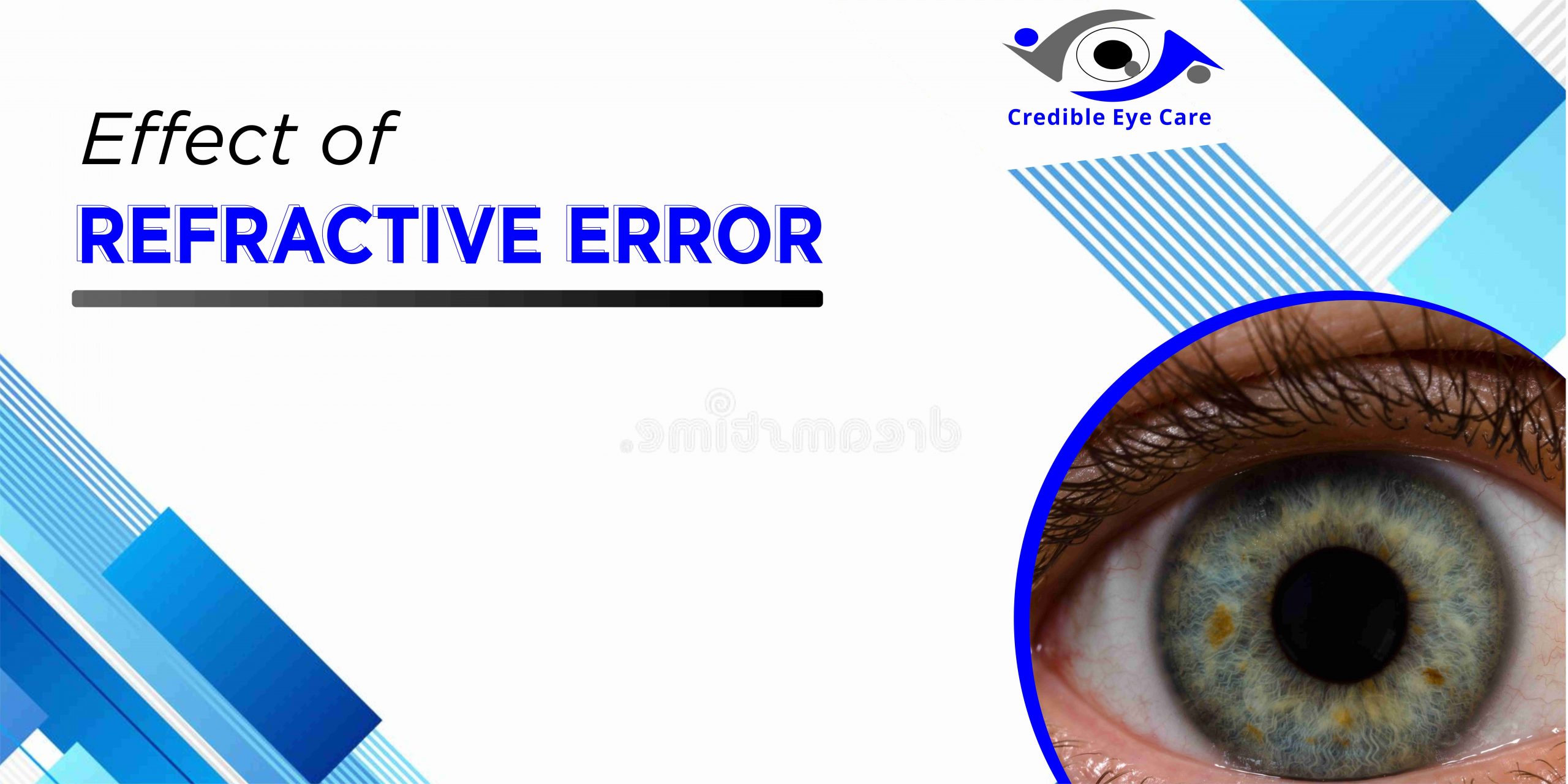Good nutrition is essential for maintaining overall health, and your eyes are no exception. At Credible Eye Care, we emphasize the importance of a balanced diet rich in specific nutrients that support eye health. Here's how nutrition plays a crucial role in keeping your vision sharp and your eyes healthy. 1. Vitamin A Vitamin A is vital for maintaining good vision. It helps protect the cornea, which is the outer covering of the eye, and is essential for night vision. Foods rich in vitamin A include carrots, sweet potatoes, and dark leafy greens. 2. Omega-3 Fatty Acids Omega-3 fatty acids, found in fish like salmon, tuna, and mackerel, are crucial for maintaining the health of the retina and preventing dry eyes. They also help reduce the risk of age-related macular…
Tips for Maintaining Healthy Vision
Maintaining healthy vision is crucial for your overall well-being and quality of life. At Credible Eye Care, we are dedicated to helping you protect your eyes and keep your vision sharp. Here are some effective tips and habits to ensure your eyes stay healthy: 1. Regular Eye Exams Schedule comprehensive eye exams regularly, even if you think your vision is fine. Early detection of eye problems can prevent more serious issues and help maintain optimal vision. 2. Protect Your Eyes from UV Rays Wear sunglasses with 100% UV protection when you are outdoors. Prolonged exposure to ultraviolet rays can increase the risk of cataracts and macular degeneration. 3. Maintain a Healthy Diet Eat a diet rich in fruits and vegetables, especially dark leafy greens like spinach, kale, and collard greens.…
How to Choose the Right Eyeglasses
Choosing the right eyeglasses is more than just a necessity for vision correction; it's an opportunity to express your personal style and enhance your overall appearance. Here at Credible Eye Care, we understand that the process can be overwhelming with so many options available. That’s why we’ve put together this comprehensive guide to help you find the perfect pair of eyeglasses. 1. Understand Your Prescription Needs Your eyeglass prescription is unique to you and dictates the type of lenses you need. Ensure you have a current prescription from your optometrist before shopping for glasses. 2. Consider Your Face Shape Different frame styles complement different face shapes. For example, round faces often look best with rectangular or square frames, while oval faces can pull off most styles. Identify your face shape…
Importance of Regular Eye Exams
Regular eye exams are more than just a way to update your prescription for glasses or contact lenses. They play a crucial role in maintaining overall eye health and detecting potential issues early on. [caption id="attachment_5788" align="alignnone" width="300"] Regular eye exams are essential for maintaining optimal eye health and early detection of potential vision problems. Discover the key benefits of scheduling your routine eye check-ups today![/caption] Here are some key reasons why you should never skip your regular eye exams: Early Detection of Eye Conditions Many eye diseases, such as glaucoma, macular degeneration, and diabetic retinopathy, develop gradually without noticeable symptoms in the early stages. Regular eye exams can help detect these conditions early, allowing for timely intervention and better management. Preserving Vision Routine eye exams can identify vision problems…
Understanding Common Eye Conditions
Your eyes are your windows to the world, and maintaining their health is crucial for a high quality of life. At Credible Eye Care, we are dedicated to providing you with the information you need to keep your eyes healthy. In this blog post, we will explore some of the most common eye conditions, their symptoms, and potential treatment options. Myopia (Nearsightedness) Myopia, or nearsightedness, is a condition where distant objects appear blurry while close objects can be seen clearly. This occurs when the eyeball is too long or the cornea has too much curvature, causing light to focus in front of the retina. Symptoms include squinting, eye strain, and headaches. Myopia can be corrected with glasses, contact lenses, or refractive surgery. Hyperopia (Farsightedness) Hyperopia, or farsightedness, is the opposite…
Debunking Common Eye Myths: Separating Fact From Fiction
Our eyes are fascinating and complex organs that play a vital role in our daily lives. However, there are many myths and misconceptions surrounding eye health and vision. In this blog, we'll explore some common eye myths and set the record straight to help you better understand your eyes and how to care for them. Myth 1: Reading in Dim Light Ruins Your Eyes Fact: Reading in dim light can cause eye strain and discomfort, but it won't permanently damage your eyes. However, it is important to have adequate lighting while reading to reduce eye strain and maintain visual comfort. Myth 2: Carrots Improve Night Vision Fact: While carrots are a healthy food that contains vitamin A, which is essential for good vision, they won't miraculously enhance your night vision.…
Myth-Busting: Separating Fact from Fiction in Eye Care
Here are some common myths and facts about eye care: Myth: Reading in dim light ruins your eyes Fact: Reading in dim light can cause eye strain and discomfort, but it won't permanently damage your eyes. Myth: Carrots improve night vision Fact: Carrots contain vitamin A, which is essential for good vision, but they won't enhance your night vision. Myth: Staring at a screen all day can lead to permanent eye damage Fact: Prolonged screen time can cause digital eye strain, but it won't lead to permanent eye damage. Myth: Wearing glasses or contacts makes your vision worse Fact: Glasses or contact lenses don't weaken your eyes; they help you see more clearly and comfortably. Myth: You can "sweat out" toxins from your eyes Fact: Sweating isn't a method for…
FACTS ABOUT HYPERTENSIVE RETINOPATHY: Risk Factors, Symptoms, and Prevention.
HYPERTENSIVE RETINOPATHY Hypertensive retinopathy is caused by high blood pressure. It causes damage to the retina and retinal circulation. (i.e. Hypertension). High blood pressure can damage the retina's blood vessels over time, limiting its function and putting pressure on the optic nerve, resulting in visual issues. The primary cause of Hypertensive Retinopathy is chronically high blood pressure, also known as hypertension. High blood pressure is a chronic condition in which the blood's power against your arteries is excessive. Hypertensive retinopathy is caused by changes in the retinal vasculature caused by elevated blood pressure. The arteriolar tone is initially increased due to autoregulation in the body's effort to reduce blood flow, causing the arterioles to narrow. Sclerotic arteries with thickened intima and media layers can develop over time. The blood-retina…

EFFECT OF REFRACTIVE ERROR
WHAT IS A REFRACTIVE ERROR? Refractive error is a frequent eye disorder in which the shape of the eye prevents light from concentrating directly on the back of the eye, resulting in blurred vision and other symptoms. It happens when the eye is unable to clearly focus on images from the outside world. Refractive errors induce blurred vision, which can be very severe and it can cause visual impairment. Almost 150 million Americans have a refractive error, but many are unaware that they could see better. That is why regular eye exams are so vital. What are the symptoms of refractive errors? The most common symptom is blurry vision. Other symptoms include: Double vision Hazy vision Seeing a glare or halo around bright lights Squinting Headaches Eye strain (when your…
GLASSES OR CONTACT LENSES? Which one do you prefer?
GLASSES OR CONTACT LENSES? Which Do You Prefer? Personal choices determine whether you wear eyeglasses or contact lenses for vision correction. Your decision should take into account your lifestyle, comfort, convenience, budget, and aesthetics. Before choosing between contacts and glasses, keep in mind that each has advantages and disadvantages in terms of vision, simplicity of use, and eye health. Contact lens is a type of corrective, aesthetic, or therapeutic lens that is typically worn on the cornea of the eye. When not in use, it must be immersed in lens care solution and refilled on a regular basis. WHILE, glasses are frames with lenses that are worn in front of the eyes, typically for vision correction, eye protection, and UV or blue light. The Lenses must be cleaned with a liquid…
